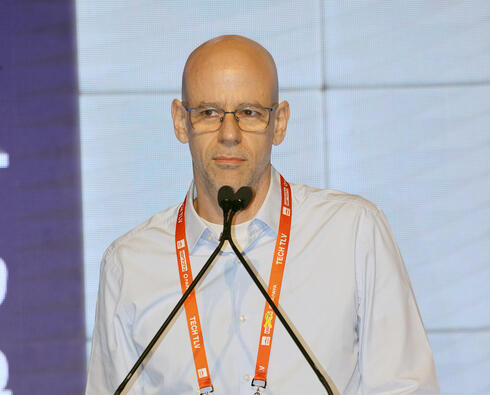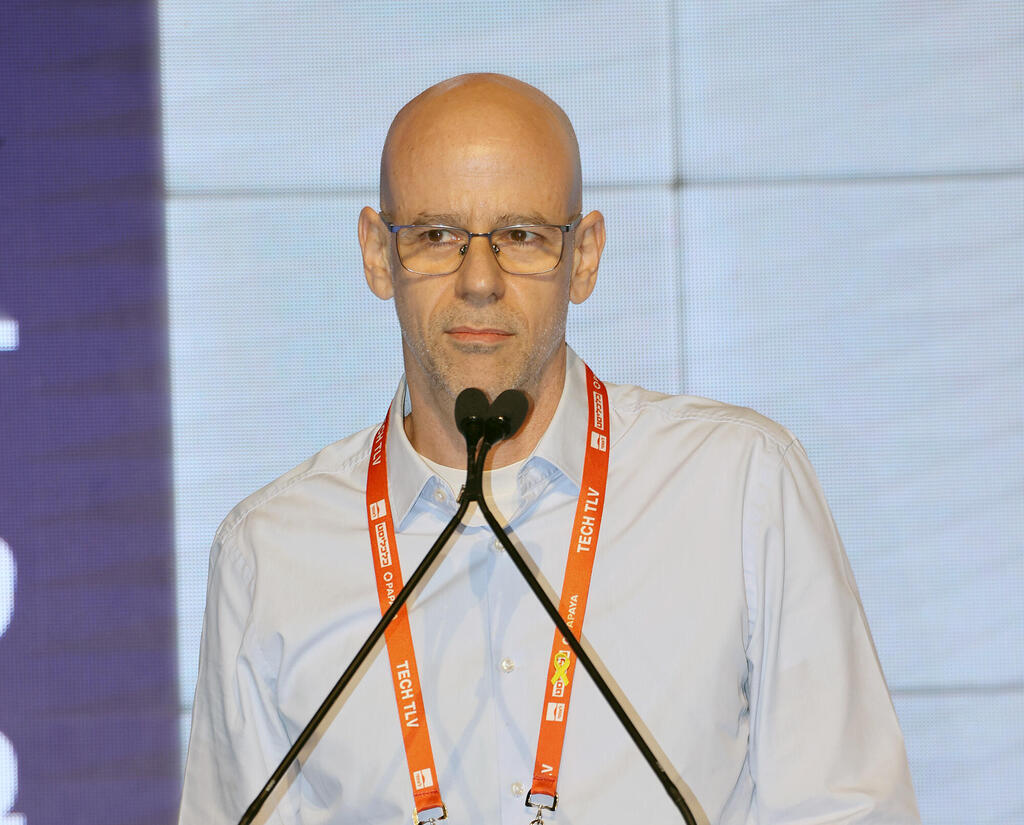
Tech TLV
"We are at a defining moment, and the actions we all take will decide where Israeli high-tech is headed"
Israel Innovation Authority CEO Dror Bin added: "No one wants to stand in front of their board of directors at the end of the quarter and say they did not meet their goals due to the war in Israel. That's why it's crucial that the high-tech industry continues to supply the goods even during the war"
"We are in a mega event. What we are experiencing now has not been felt in Israel since the 1970s. Back then, Israeli high-tech was not as significant as it is today," said Dror Bin, CEO of the Israel Innovation Authority, at Calcalist's Tech TLV conference held in collaboration with Bank Leumi and PAPAYA.
"We are at a defining moment, and the actions we all take—both the industry and the government together—will decide where Israeli high-tech is headed," added Bin.
"We often use the cliché 'the driving engine of Israel,' but there are numbers that show it," explained Bin. "Israeli high-tech contributes 28% of our gross domestic product, a unique case in the world economy. About 12% of employees work in high-tech, ranking us first globally. Simultaneously, approximately 6% of GDP is invested in research and development, significantly above the global average."
Bin highlighted another impressive aspect of the local industryN and its global significance, stating, "There are about 9,000 high-tech companies in Israel, ranking third globally in the absolute number of high-tech companies. Silicon Valley and the metropolitan area of New York are the only places ahead of us. Damage to Israeli high-tech also impacts global high-tech."
During wartime, the significance of the local industry becomes even more critical. "When the fighting broke out, the main concern was how the world would perceive us, and I'm happy to say that the global tech industry stood by us and supported us," said Bin. However, he pointed out, "In the end, no one wants to stand in front of their board of directors at the end of the quarter and say they did not meet their goals due to the war in Israel. That's why it's crucial that the high-tech industry continues to supply the goods even during the war."
According to Bin, the message is important but is not enough. "Two weeks after the outbreak of the war, we launched a rapid investment route aimed at protecting early-stage startups financed by venture capital funds. We discovered that hundreds of companies were at risk of running out of money within six months. We cannot afford such a situation. The rapid route's purpose is to protect companies that have business technology assets but less than six months of runway."
Bin elaborated on the matter, saying, "We have already approved 120 requests, and companies will receive grants of millions of shekels each. We have spent over 200 million shekels of the allocated amount of 400 million shekels. This amount alone will not move the needle. Everyone understands that the government needs to invest much more to ensure the growth of Israeli high-tech after the war."
In addition to grants for existing companies, the Innovation Authority introduced the Tnufa fund to support early-stage entrepreneurs. "An entrepreneur wanting to develop an idea can receive NIS 200,000 to get started. Simultaneously, the Authority has announced the establishment of nine innovation centers throughout the country.
"There are two big changes required in the state budget: a new startup fund of half a billion shekels annually that will invest together with the private sector, aiming to generate new waves of innovation and growth in Israeli high-tech. The other change is to establish a new fund to encourage Israeli institutions to invest in Israeli venture capital funds, preventing stagnation in investments," Bin stated.
"All of this should be in addition to significant national programs, each amounting to one billion shekels, launched a year or two ago, which will not be cut in the current state budget," Bin emphasized. "We continue to invest in the infrastructures for the next waves of technology, including artificial intelligence and Bio-Convergence, the next wave of biological transformation. Israel should be at the forefront of innovation in this sector as well."
In summary, Bin noted, "This is a package of moves that will provide an answer to long-term challenges. We will do everything necessary so that Israeli high-tech emerges strong from this crisis and can compete against innovation centers across the world."














